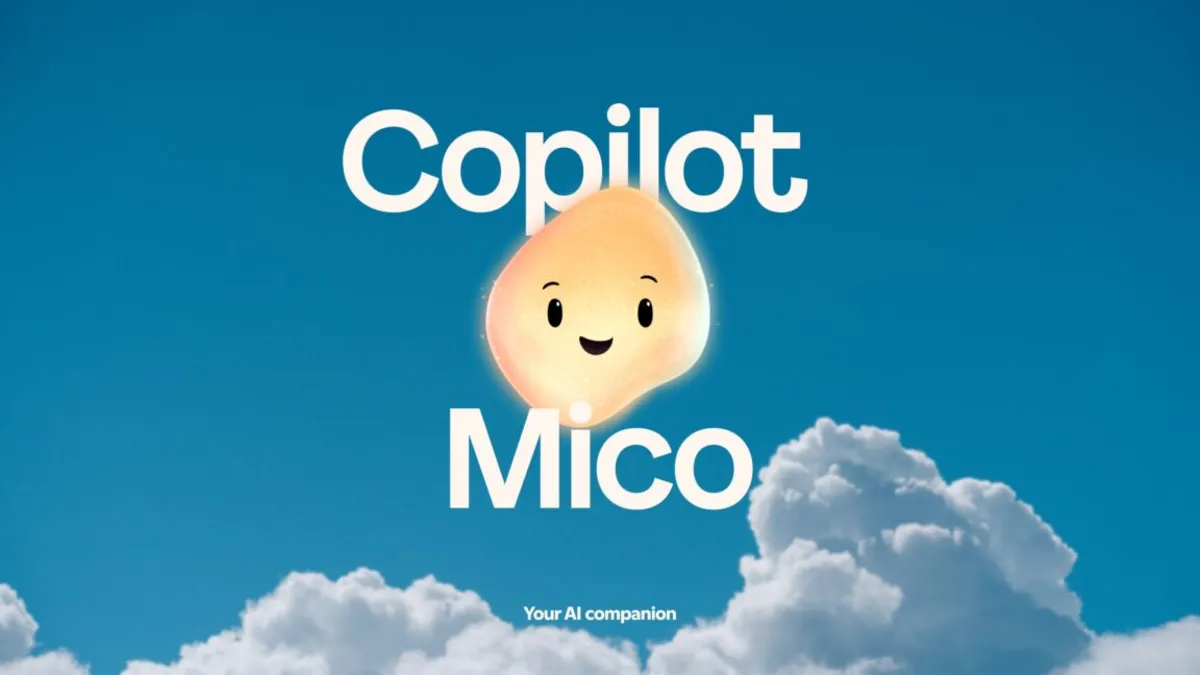
Earlier this month, Microsoft announced its intention to enhance voice controls for Copilot, the built-in chatbot and virtual assistant in Windows 11. This new iteration of Copilot appears to be a renewed effort to revive Cortana, Microsoft's previous voice assistant that struggled to gain traction among users during its tenure in Windows 10 throughout the mid-to-late 2010s. It seems that Microsoft is not finished with its ambition to reformulate and reinvigorate past concepts.
In line with its vision for “human-centered AI,” Microsoft is now giving Copilot a literal face. Enter “Mico,” an “expressive, customizable, and warm” avatar designed to enhance user interaction. Mico dynamically “listens, reacts, and even changes colors” based on your interactions with Copilot. Importantly, Mico’s presence is optional, allowing users to choose whether they want to engage with this new feature.
Mico, which rhymes with “pico,” brings to mind earlier digital assistants like Clippy, Microsoft Bob, and Rover, concepts Microsoft experimented with in the 1990s and early 2000s before largely abandoning them. By backing these nostalgic ideas with advanced language and reasoning models, Microsoft hopes that Copilot can succeed where Cortana and Clippy fell short. One key reason these previous assistants were often deemed annoying rather than helpful was their limited ability to respond to a finite number of inputs or situations, often failing to assist users effectively.
Many users of a certain age can likely relate to the experience of dismissing Clippy’s infamous prompts like, “It looks like you’re writing a letter!” However, with the integration of large language models, the scenarios that assistants like Copilot and Mico can address are theoretically limitless. This advancement allows for a more contextual and responsive interaction, potentially enhancing user experience significantly.
While the effectiveness and accuracy of the output generated by Copilot and Mico remain to be seen, this has not deterred Microsoft from its initiative to promote Copilot across all Windows, Office, and Edge users. Mico represents just one aspect of the enhancements included in the upcoming Copilot Fall Release.
Alongside Mico, Microsoft is rolling out several other features aimed at improving the Copilot experience. Among these updates is Copilot Groups, a chatbot capable of engaging with groups of up to 32 individuals simultaneously. Additionally, the Memory & Personalization settings will allow users to customize how Copilot retains context from previous conversations.
Moreover, the newly introduced Copilot for health feature aims to deliver more accurate responses to health care-related inquiries by grounding its answers in credible sources, such as Harvard Health. This feature also assists users in finding the right healthcare professionals based on specialty, location, language, and other preferences.
Microsoft has announced that these updates will be available to Copilot users in the United States and will expand to the UK, Canada, and other regions in the coming weeks.